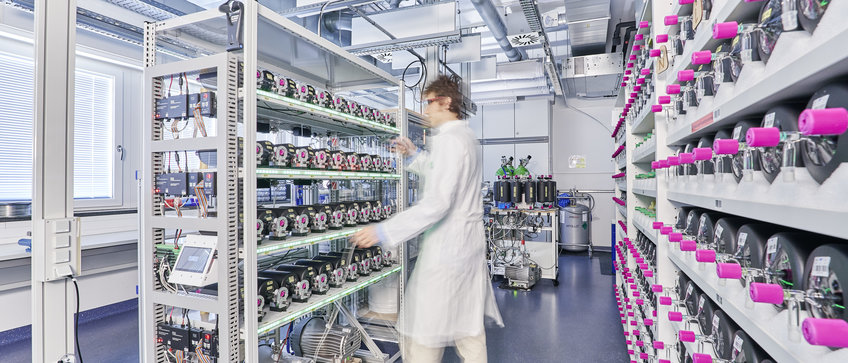
Flask and Calibration Laboratory (FCL) of the European Infrastructure ICOS
Analysis of air samples and production of calibration gases
The Integrated Carbon Observation System, ICOS, is a European Research Infrastructure for the study of the European greenhouse gas budgets.
ICOS provides freely available standardized data from more than 140 observational stations from 14 European countries. The stations measure greenhouse gas concentrations in the atmosphere as well as carbon fluxes between the atmosphere and terrestrial ecosystems and oceans. The obtained measurement are fundamental for the assessment of greenhouse gas emissions and such contribute to the subsequent prediction of climate change.
ICOS coordinates the respective measurement networks and is supported by dedicated central facilities. The central laboratory for air sample measurement and calibration of reference gases is operated by the Max Planck Institute for Biogeochemistry in Jena, while a further central laboratory for the determination of radiocarbon in CO2 is hosted by the University of Heidelberg.
Flask and Calibration Laboratory (FCL)
The Flask Laboratory analyzes air samples that have been filled into glass containers (so-called flasks) at observatories. We measure very accurately the levels of greenhouse gases and other constituents that can provide additional information on specific emission sources. The representativeness of such a single air sample for a particular site, and thus its scientific validity, depends on the local meteorological conditions under which it was taken. The Flask Laboratory has developed and manufactured automated sampling devices for the ICOS monitoring network. These enable different options for targeted filling of flasks under specified conditions to implement the ICOS flask sampling strategy.
A high accuracy of the measurements is fundamental for the detection of changing trends. Ensuring this quality of the measurements is an essential task of the Calibration Laboratory in Jena, which provides reference gases for the atmospheric and ocean measurement networks of ICOS. Interlaboratory comparisons are used to verify compatibility with data from other global observing networks contributing to the WMO Global Atmosphere Watch program.
Measurement data of the Flask and Calibration Laboratory are processed via a central software system, archived in a database and transferred to the ICOS Atmosphere Thematic Centre.









